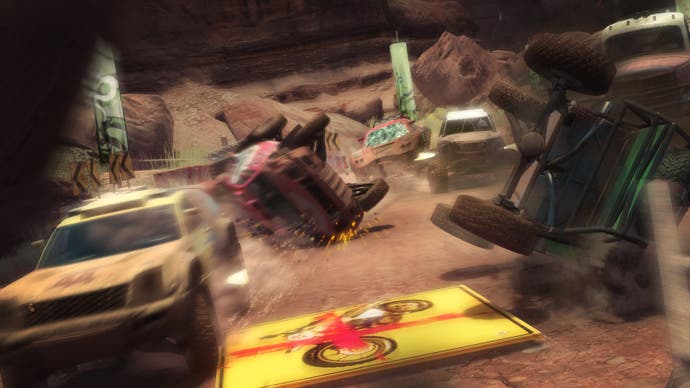Retrospective: Phil Harrison
Reflecting on Harrison's 15-year career at Sony.
"Target Renders"
We don't mean to gloss over Harrison's achievements as head of development for SCEE, by any means, and we'll return to them in due course - but 2005 is the year that most readers will want to hear about. It was the year when two major changes brought Phil Harrison to the attention of the gaming world, turning him from one of the backroom powerhouses behind the success of the PlayStation into a global figurehead for Sony.
Internally, he was promoted to head up SCE's new Worldwide Studios operation, taking responsibility for all of Sony's game development, all over the world. Externally - and very publicly - he also became the face of the company's most controversial E3 press conference ever.
Only Harrison himself can possibly know if he felt a sense of trepidation before taking the stage in Los Angeles in May 2005 to demonstrate the PlayStation 3 for the first time. Beyond simple stage nerves, there was the fact that Sony was taking a radically different approach to Microsoft - with the PS3's game line-up being shown off as "target renders", essentially CG movies that approximated the power of the console, while Microsoft's stable was being demonstrated in underwhelming but honest form on development hardware.
Even though senior Microsoft executives privately conceded that they'd made a mistake by showing raw, unfinished and underpowered code rather than slick renders, it's Sony whose performance is still lambasted almost three years later. The media was impressed by what was really their first taste of next-gen graphics; Sony's presentation, ironically, was closer visually to the final quality of games on both the Xbox 360 and the PS3 than anything Microsoft showed on its development hardware. However, once it became clear how little of the presentation had been run on PS3 hardware, the backlash against Sony's perceived dishonesty was swift, and unforgiving.

For Harrison, it was an ignominious beginning to what was to be a very public few years. It seems unlikely that he anticipated the backlash against the rendered footage, and indeed, he was perfectly honest about the nature of "target renders", as they're known, in the immediate wake of the conference. Despite his development background, his career as an executive has left Harrison no stranger to corporate double-speak - which makes it all the more ironic that in this famous incident, he genuinely seemed to intend no subterfuge.
Despite the backlash against Sony's perceived dishonesty, however, Harrison went on to become the lynchpin of the firm's PR plans at conferences such as E3 and GDC - and in the wake of the PS3's announcement, he was an even more regular face in interviews and speeches than former PR figureheads Kaz Hirai and Ken Kutaragi. Affable, well-spoken and passionate about his games, Harrison was reinvented as a great public speaker and cornerstone of Sony's next-gen ambitions.
Internal Divides
The negative aura that had been generated by E3 2005's target renders, however, never quite went away. Even as Harrison demonstrated groundbreaking, exciting software like Singstar, LittleBigPlanet and PlayStation Home (only one of which would actually make it into consumers' hands before his departure from Sony), there was still a strong whiff of cynicism and mistrust in coverage of his statements.
Harrison himself was by no means oblivious to this, but Sony's own stifling corporate environment prevented him from using the kind of direct, honest speech that could have dispelled the atmosphere of cynicism. Many journalists who interviewed Harrison noted that once the tape stopped rolling, he was honest and direct to the extent of actually being incredibly blunt, even about Sony's own failings.
On the record, however, he was corporate through and through - guarded, carefully worded and professional. In the absence of the relatively free rein given to rival executives like Peter Moore to speak bluntly and in plain language, Harrison unquestionably faced a tougher struggle to win respect from his audience.
It certainly didn't help, either, that while Harrison's statements - be they in speeches or in interviews - tended to be comparatively modest and conciliatory, those of his bosses and colleagues at Sony were quite the opposite. Ken Kutaragi's astonishing claims that people would get second jobs to pay for PS3s, Kaz Hirai's litany of boastful, over the top presentations and statements, Jack Tretton's dishonesty (or ignorance, take your pick) over PS3 stock levels - it occasionally felt like the altogether more diplomatic Harrison was being wheeled out simply to take the flak and to smooth the ruffled feathers caused by the rest of Sony's execs' inability to open their mouths without sticking their feet in.
